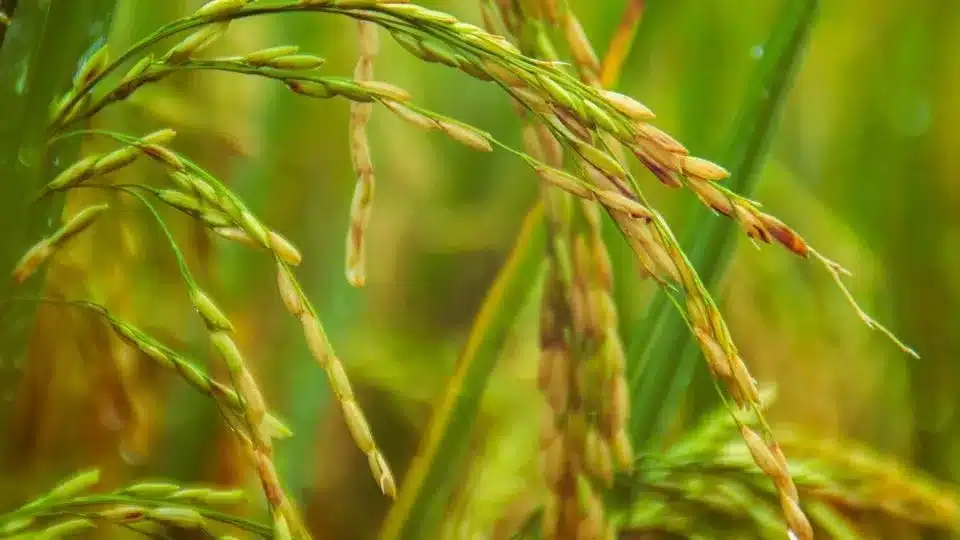Tags
A revolution in rice cultivation
Bangabandhu dhan100 stands as a testament to the remarkable progress made in the field of agricultural research in Bangladesh

Agriculture plays a vital role in the economy of Bangladesh, with rice being the staple food of the nation. In recent years, the government has been actively promoting scientific research and innovation in the agricultural sector to enhance productivity and ensure food security.
One such breakthrough is the introduction of “Bangabandhu dhan100,” a high-yielding rice variety named in honour of Bangladesh’s founding father Sheikh Mujibur Rahman. This article explores the significance and impact of Bangabandhu dhan100 in revolutionizing rice cultivation in Bangladesh.
Developed by the Bangladesh Rice Research Institute (BRRI), Bangabandhu dhan100 is a result of years of meticulous research and breeding efforts. It is a high-yielding variety of rice that boasts numerous advantages over traditional varieties, including enhanced yield potential, improved disease resistance, and increased tolerance to environmental stresses.
Bangabandhu dhan100 has been specifically engineered to address the pressing need for increased rice production in Bangladesh. With its exceptional yield potential, this variety can produce up to 10 tons of rice per hectare, significantly higher than traditional varieties. This surge in productivity helps meet the growing demand for rice, ensuring food security and reducing the country’s reliance on rice imports.
Diseases such as blast and bacterial leaf blight pose significant threats to rice crops, leading to substantial yield losses. Bangabandhu dhan100 exhibits a remarkable resistance against these diseases, making it less susceptible to infections and reducing the need for costly pesticides.
Additionally, this variety shows increased tolerance to environmental stresses, such as drought and salinity, which are common challenges faced by farmers in Bangladesh. By withstanding these adversities, Bangabandhu dhan100 offers farmers a more reliable and resilient option for rice cultivation.
The introduction of Bangabandhu dhan100 not only benefits farmers through increased yields but also contributes to their overall economic well-being. By adopting this high-yielding variety, farmers can generate higher incomes and improve their standard of living.
The enhanced productivity of Bangabandhu dhan100 enables farmers to save on production costs while reaping higher profits from their harvests. This increased financial stability empowers farmers to invest in their farms, adopt modern agricultural practices, and contribute to the economic growth of the country.
In addition to its socioeconomic advantages, Bangabandhu dhan100 also promotes environmental sustainability. The higher yield potential reduces the need for expanding agricultural land, preventing deforestation and preserving natural habitats.
Furthermore, the increased disease resistance and tolerance to environmental stresses reduce the reliance on chemical inputs, leading to reduced pesticide usage and promoting an eco-friendlier approach to agriculture.
Recognizing the importance and potential of this variety, the government of Bangladesh has taken proactive measures to promote its widespread adoption. Subsidized seed distribution programs, training sessions, and awareness campaigns have been implemented to facilitate farmers’ transition to this high-yielding variety.
Additionally, the government continues to invest in research and development to further enhance the capabilities of Bangabandhu dhan100 and explore other innovative solutions for the agricultural sector.
Bangabandhu dhan100 stands as a testament to the remarkable progress made in the field of agricultural research in Bangladesh. By combining increased yield potential, disease resistance, and environmental adaptability, this high-yielding rice variety has revolutionized rice cultivation, ensuring food security, empowering farmers, and promoting environmental sustainability.
With continued government support and advancements in agricultural science, the future holds even greater promise for the growth and prosperity of the agricultural sector in Bangladesh.
Tahmina Akter is Scientific Officer, Agronomy Division , Bangladesh Rice Research Institute (BRRI).
https://www.dhakatribune.com/opinion/op-ed/329828/a-revolution-in-rice-cultivationPublished Date: November 2, 2023






